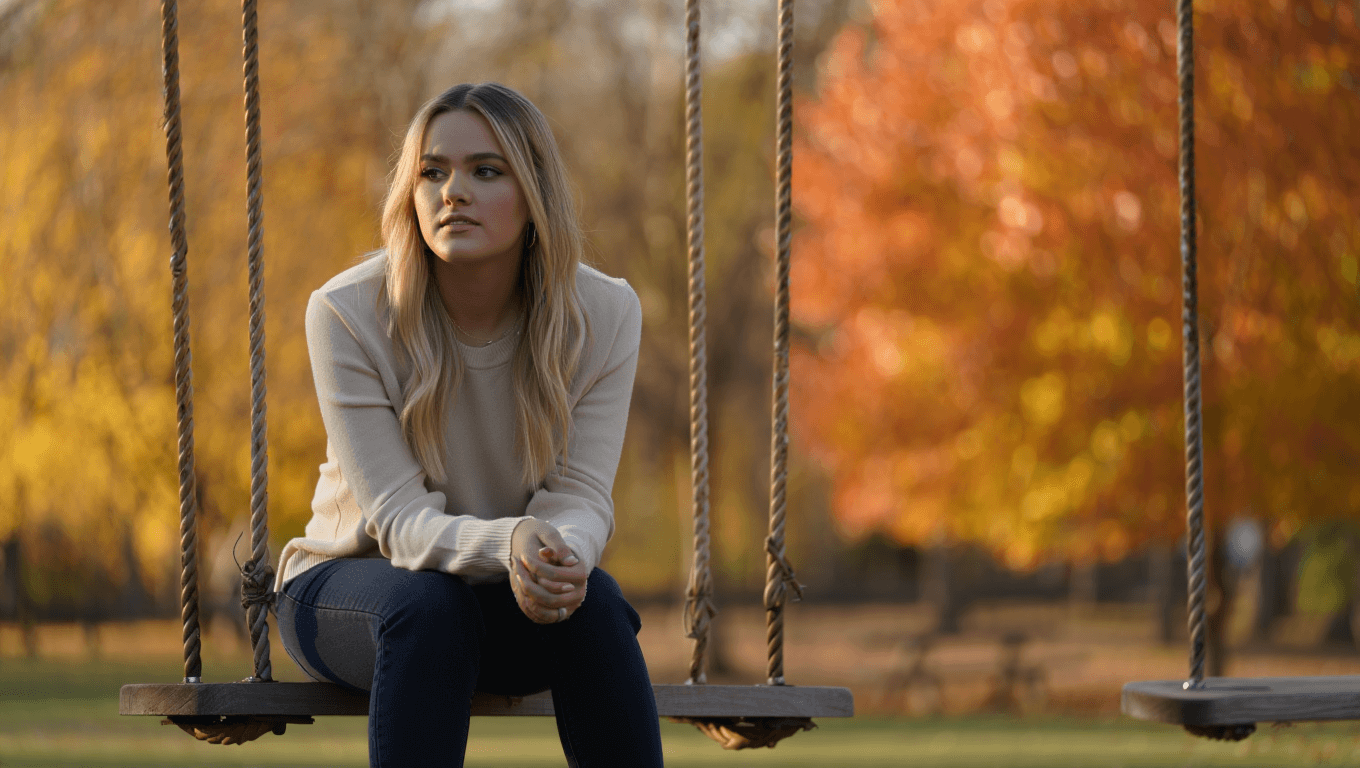Kelsea Ballerini just ignited a cultural firestorm with her new song “I Sit In Parks.” Released on November 14, 2025, the haunting track from her Mount Pleasant EP has sparked intense debate online. The song explores motherhood regret and career sacrifice honestly. Now conservative and progressive voices are battling over its meaning.
Bold and Beautiful spoilers: Luna faces grave danger as escape intensifies, Li pleads surrender
Chase Stokes and Kelsea Ballerini reunited but he skips her CMA Awards performance
🔥 Quick Facts:
- Song Release: “I Sit In Parks” dropped on November 14 as part of Mount Pleasant, a 6-track EP
- The Artist: Kelsea Ballerini is 32 years old and was previously married to actor Chase Stokes
- The Debate: Conservative commentators say it exposes feminism’s broken promises to women
- Fan Support: Majority of YouTube comments show positive response from women relating to the song
- Lyrical Focus: Song directly addresses the tension between career ambition and motherhood desires
What “I Sit In Parks” Actually Says
The song opens with a vividly personal image: Ballerini sitting in a park watching a woman her own age enjoying a picnic with her husband and kids. The lyrics are raw and unfiltered. She wonders aloud if she sacrificed motherhood for her career. One particularly cutting line reads, “Did I miss it?” The track also references how she fills her Lexapro prescription while scrolling past Rolling Stone articles.
Mani Stone Roses bassist dies aged 63, legendary musician mourned by bandmates
Everybody Loves Raymond reunites cast for 30th anniversary special on CBS Nov. 24
The 2-minute, 11-second track never blames feminism directly in the lyrics themselves. Instead, Ballerini acknowledges simply pursuing her chosen path and now confronting the biological reality of fertility. She sings about wondering if the woman in the park wants her freedom the way she wants to be a mother. This is apolitical and deeply personal.
The song doesn’t attack anyone or any ideology. It simply sits with the feeling of longing. That emotional rawness is precisely what resonated so widely.
Why This Debate Is Happening Online
Conservative commentators immediately seized on the song as evidence that feminism failed women. Fox News published an opinion piece titled, “Kelsea Ballerini’s Haunting New Song Exposes the Loneliness Feminism Forgot.” The Daily Wire framed it as proof that women feel “duped” by messaging to prioritize careers first.
However, Glamour magazine’s breakdown reveals a different reality in the comments section. Women engaging with the song cite practical reasons for delayed motherhood: they didn’t meet partners until their 30s, childcare is prohibitively expensive, and the dating scene itself created timing obstacles. Most comments focused on economic hardship and relationship timing, not ideology.
The cultural left argues the song doesn’t blame feminism at all. Meanwhile, conservative outlets use it to attack feminism broadly. This fundamental disagreement about what “I Sit In Parks” actually means is the real story.
How Fans Are Actually Reacting
YouTube comments on the official music video skew overwhelmingly supportive. Women in their 30s and 40s share personal stories about timing, late-in-life pregnancies, and career-parenthood tension. Many reference “God’s timing” alongside acknowledgment of biological realities. Others share heartfelt messages about still having years ahead despite current struggles.
One popular TikTok featured a woman battling cancer crying about potential fertility loss. Ballerini responded directly with virtual support. The comments section turned into a community of women validating each other’s complex feelings about life paths and choices. This grassroots response matters more than talking-head discourse.
The emotional honesty resonates because it avoids judgment. Ballerini isn’t saying mothers failed or that careers failed. She’s sitting with the sadness of one specific moment in her specific life.
What Ballerini Has Said About It
The singer opened up about her creative process in a TikTok posted on November 13. She explained that after a demanding spring—touring arenas and coaching on The Voice—she had time alone to reflect. She was asking herself a “pulse check” on life at age 32 with no distractions keeping her from feeling.
“What I want in my life now is different than what I wanted at 25,” she stated in the video. “And also acknowledging that I’m not 25 anymore, and having all these feelings come up to the surface.” She emphasized she wasn’t running from those feelings but sitting with them intentionally. This self-awareness shaped the entire Mount Pleasant project.
Ballerini has not directly addressed the broader cultural debate. She’s letting the song speak for itself and allowing listeners to bring their own interpretations.
Do We Really Understand What’s Happening Here?
Is “I Sit In Parks” really about feminism failing women? Or is it about economic anxiety, fertility timelines, and the search for meaning during burnout recovery? The truth is probably both—and neither. The song works precisely because it’s ambiguous enough that multiple generations see themselves in it.
What matters most is that Ballerini’s vulnerability opened a space for honest conversation about motherhood, career, timing, and regret. Those feelings are real regardless of ideology. Whether the cultural left or right “wins” this debate misses the point entirely. The song’s power lies in its refusal to take sides.
Sources
- Glamour – Comprehensive breakdown of song meaning and online discourse
- Fox News Opinion – Analysis of song’s cultural implications
- Rolling Stone – Initial song announcement and release coverage

Jessica Morrison is a seasoned entertainment writer with over a decade of experience covering television, film, and pop culture. After earning a degree in journalism from New York University, she worked as a freelance writer for various entertainment magazines before joining red94.net. Her expertise lies in analyzing television series, from groundbreaking dramas to light-hearted comedies, and she often provides in-depth reviews and industry insights. Outside of writing, Jessica is an avid film buff and enjoys discovering new indie movies at local festivals.

